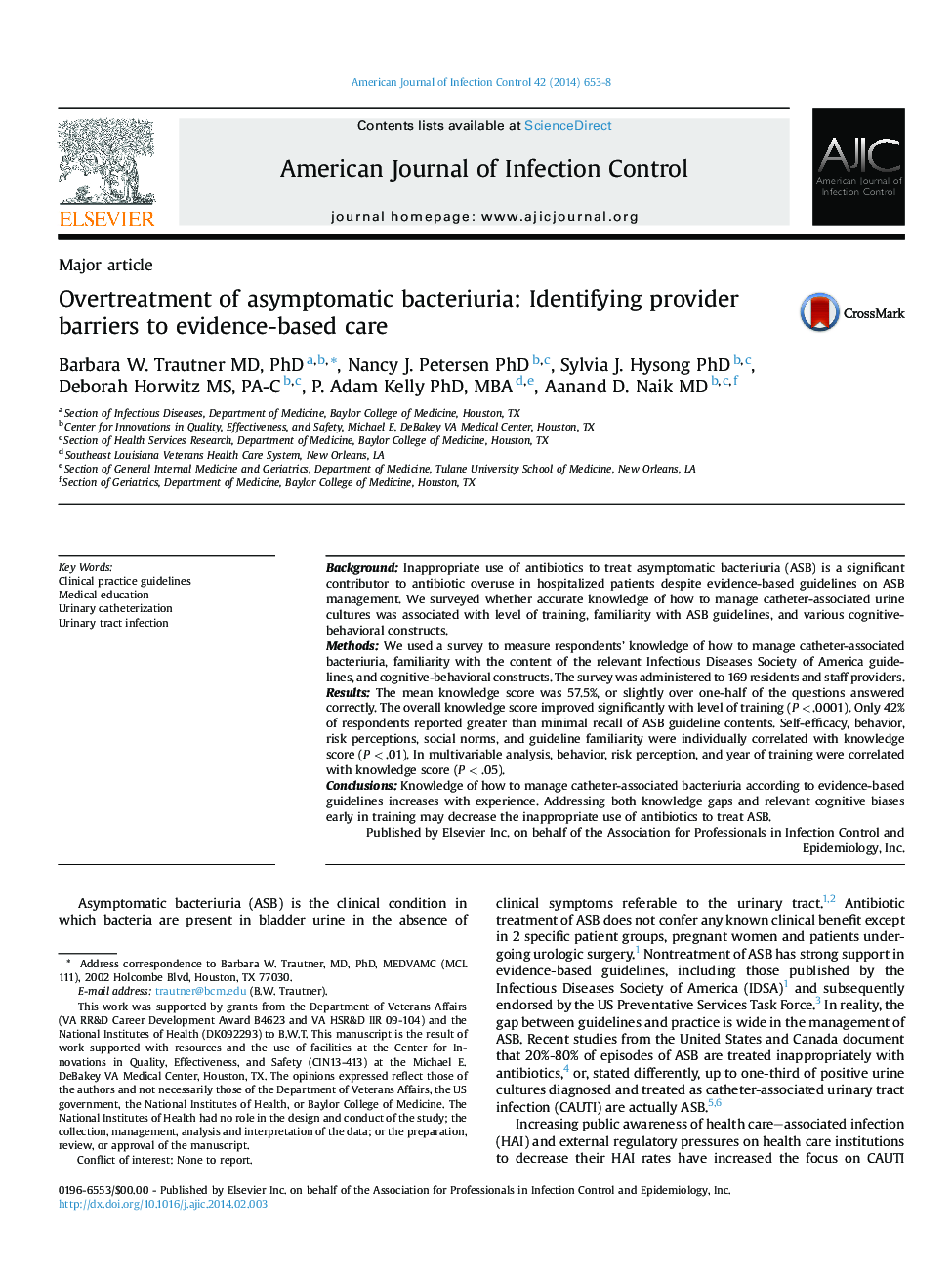| Article ID | Journal | Published Year | Pages | File Type |
|---|---|---|---|---|
| 2638196 | American Journal of Infection Control | 2014 | 6 Pages |
BackgroundInappropriate use of antibiotics to treat asymptomatic bacteriuria (ASB) is a significant contributor to antibiotic overuse in hospitalized patients despite evidence-based guidelines on ASB management. We surveyed whether accurate knowledge of how to manage catheter-associated urine cultures was associated with level of training, familiarity with ASB guidelines, and various cognitive-behavioral constructs.MethodsWe used a survey to measure respondents' knowledge of how to manage catheter-associated bacteriuria, familiarity with the content of the relevant Infectious Diseases Society of America guidelines, and cognitive-behavioral constructs. The survey was administered to 169 residents and staff providers.ResultsThe mean knowledge score was 57.5%, or slightly over one-half of the questions answered correctly. The overall knowledge score improved significantly with level of training (P < .0001). Only 42% of respondents reported greater than minimal recall of ASB guideline contents. Self-efficacy, behavior, risk perceptions, social norms, and guideline familiarity were individually correlated with knowledge score (P < .01). In multivariable analysis, behavior, risk perception, and year of training were correlated with knowledge score (P < .05).ConclusionsKnowledge of how to manage catheter-associated bacteriuria according to evidence-based guidelines increases with experience. Addressing both knowledge gaps and relevant cognitive biases early in training may decrease the inappropriate use of antibiotics to treat ASB.
